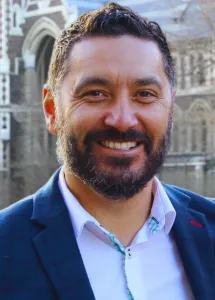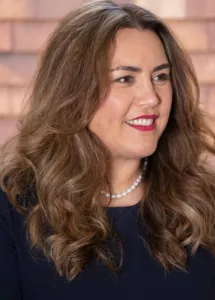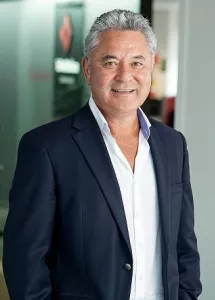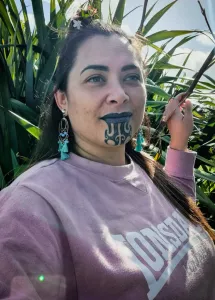Kim Hinetotorirangi Kaua Whaanga-Kipa
Rongowhakaata, Te Aitanga a Mahaki, Rakai Paaka, Kahungunu, Rongomaiwahine, Ngāi Tāmanuhiri
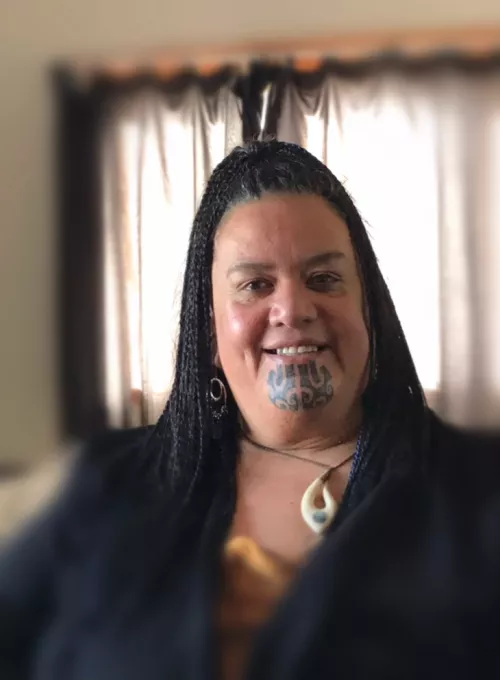
Kim was born and grew up in Rongowhakaata (Gisborne) and had the pleasure of being surrounded by many generations of whānau. Kim believes that these were, and still are her most special days: of ‘having lots of nannies, aunties, grandfathers in her life’. Kim’s mum married when she was 11 years old. Kim now has 14 other siblings to help grow and share her life with. Kim has always expressed, “even up to this very day, that is where my foundational principles of whānaungatanga, of the values and beliefs in whānau, have come from”.
For the last twenty-five plus years, Kim has been an active part of the alcohol and drug sector on both a personal and professional level. Her journey began during her younger years when in and through her own life she began ‘researching and experimenting’ with drugs and alcohol. Eventually, she ended up attending an Alcohol and other Drugs Rehabilitation centre and getting clean and sober.
These ‘lived’ experiences have been pivitol and the platform for many ongoing developments within both her immediate whānau and extended community. Kim has seven children - two are whāngai (fostered) and five of her own. She also has seventeen mokopuna (grandchildren), her ‘foundation’ in maintaining her ongoing lifestyle changes.
Kim was one of the founders of the first Accredited Alcohol and Drug Peer support services within the country (2001)- she believes in the wealth of “lived experiences” and the inclusion of whānau (family) in the process of healing.
Kim nationally advocates for the voice of whānau within the Mental Health & Addiction sector, and currently holds a role of Pou within National Kaupapa Whānau Oranga movement where she sees a big part of her responsiblity is to create opportunites of Hope, where whānau can “share their stories, change their stories, and create new stories”, in what ever medium that may be, she sees the current model of healing “very westernised and individual focused”. Her belief and stance is to “Educate whānau to Educate themselves”. Thus, her dream is to build a papakāinga (home based) whare wānanga (University) within the Tūranganui-a-Kiwa rohe, where whānau can wānanga collectively back to wealth and health.
Our Mission for our Trust is ” Whānau delivering whānau change”
Learn FROM Experience, Teach WITH Experience, Grow IN Experience
Kim uses models like P.A.T.H (Planning alternative tomorrow with hope) as a tool to encourage self and whānau responsibility. She has also adapted from the Mauri Ora Framework (Te Korowai Aroha o Aotearoa) a whānau peer based healing model which she named “Te Pito” , where she has used this model for many years with her own whānau toto (family blood line) and also Kaupapa Whānau Oranga- Whānau in recovery. Kim believes that “Intergenerational change has to begin with me”, look for solutions in the heartbeat and thats whānau.
Manny Kipa, Kaitiaki, Ngāti Raukawa ki te Tonga, Rangitane
